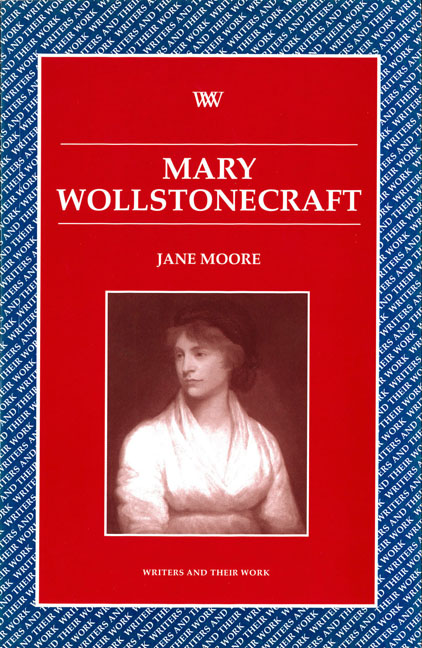Book contents
- Frontmatter
- Contents
- Acknowledgements
- Biographical Outline
- Abbreviations and References
- 1 Introduction: An Extraordinary Woman
- 2 Early Rebellion: Thoughts on the Education of Daughters, Mary. A Fiction, and ‘The Cave of Fancy`’
- 3 Professional Works: Original Stories from Real Life, The Female Reader, Translations, and Reviews
- 4 Revolutionary Protest: A Vindication of the Rights of Men, Vindication of the Rights of Woman, and The Wrongs of Woman: or, Maria. A Fragment
- 5 Romantic Ventures: An Historical and Moral View of the Origin and Progress of the French Revolution and ‘Letters to Imlay’
- 6 Final Destinations: Letters Written During a Short Residence in Sweden, Norway and Denmark, and Posthumous Works
- Notes
- Select Bibliography
- Index
4 - Revolutionary Protest: A Vindication of the Rights of Men, Vindication of the Rights of Woman, and The Wrongs of Woman: or, Maria. A Fragment
- Frontmatter
- Contents
- Acknowledgements
- Biographical Outline
- Abbreviations and References
- 1 Introduction: An Extraordinary Woman
- 2 Early Rebellion: Thoughts on the Education of Daughters, Mary. A Fiction, and ‘The Cave of Fancy`’
- 3 Professional Works: Original Stories from Real Life, The Female Reader, Translations, and Reviews
- 4 Revolutionary Protest: A Vindication of the Rights of Men, Vindication of the Rights of Woman, and The Wrongs of Woman: or, Maria. A Fragment
- 5 Romantic Ventures: An Historical and Moral View of the Origin and Progress of the French Revolution and ‘Letters to Imlay’
- 6 Final Destinations: Letters Written During a Short Residence in Sweden, Norway and Denmark, and Posthumous Works
- Notes
- Select Bibliography
- Index
Summary
On 14 July 1789 the Bastille fell; in October of the same year the French royal family were threatened by a revolutionary mob at Versailles, and were subsequently removed to Paris. The violence in France sparked on the other side of the Channel a war of words involving politicians, essay writers, journalists, novelists, poets, and their publishers; no one who put pen to paper during the revolutionary decade of 1790 could remain untouched by the force of events. In Britain those who welcomed the Revolution in its early days included the Revd Dr Richard Price, leader of the religious Dissenting community based in Newington Green, London, where Wollstonecraft had briefly lived and taught prior to moving to Ireland. Price was a mentor of hers, someone with whom she exchanged letters, and whose views she shared.
At a meeting of the Revolution Society in November 1789 Price had hailed the French Revolution as a continuation of the democratic reform of the English political system that had occurred at the end of the seventeenth century, the Glorious Revolution of 1688. Affronted by Price's interpretation of events in France, particularly the confusion of English history with French developments, Edmund Burke, Irish statesman and inveterate orator, counter-attacked with his Reflections on the Revolution in France (1790), an eloquent defence of monarchical and hereditary power. Burke argued that Price was guilty of gross misjudgement in likening the sudden upheaval in France to the English revolution of 1688. The latter, Burke maintained, had been a process of gradual reform, bringing peace and political stability to the nation; while the former was rapidly throwing everything into political chaos and turmoil. Burke's attack on the French Revolution came as something of a shock to those in Britain who had seen him lend his support to the struggle of the American peoples to free themselves from the yoke of English sovereignty, and who knew of his efforts in Parliament to reduce the power of the English court. Not unreasonably, they also expected him to welcome the overthrow of the French monarchy.
Wollstonecraft's A Vindication of the Rights of Men, in a Letter to the Right Honourable Edmund Burke was one of over fifty published replies to Burke's Reflections, the most famous of which were Paine's Rights of Man (1791–2) and Godwin's Political Justice (1793).
- Type
- Chapter
- Information
- Mary Wollstonecraft , pp. 32 - 47Publisher: Liverpool University PressPrint publication year: 1999



